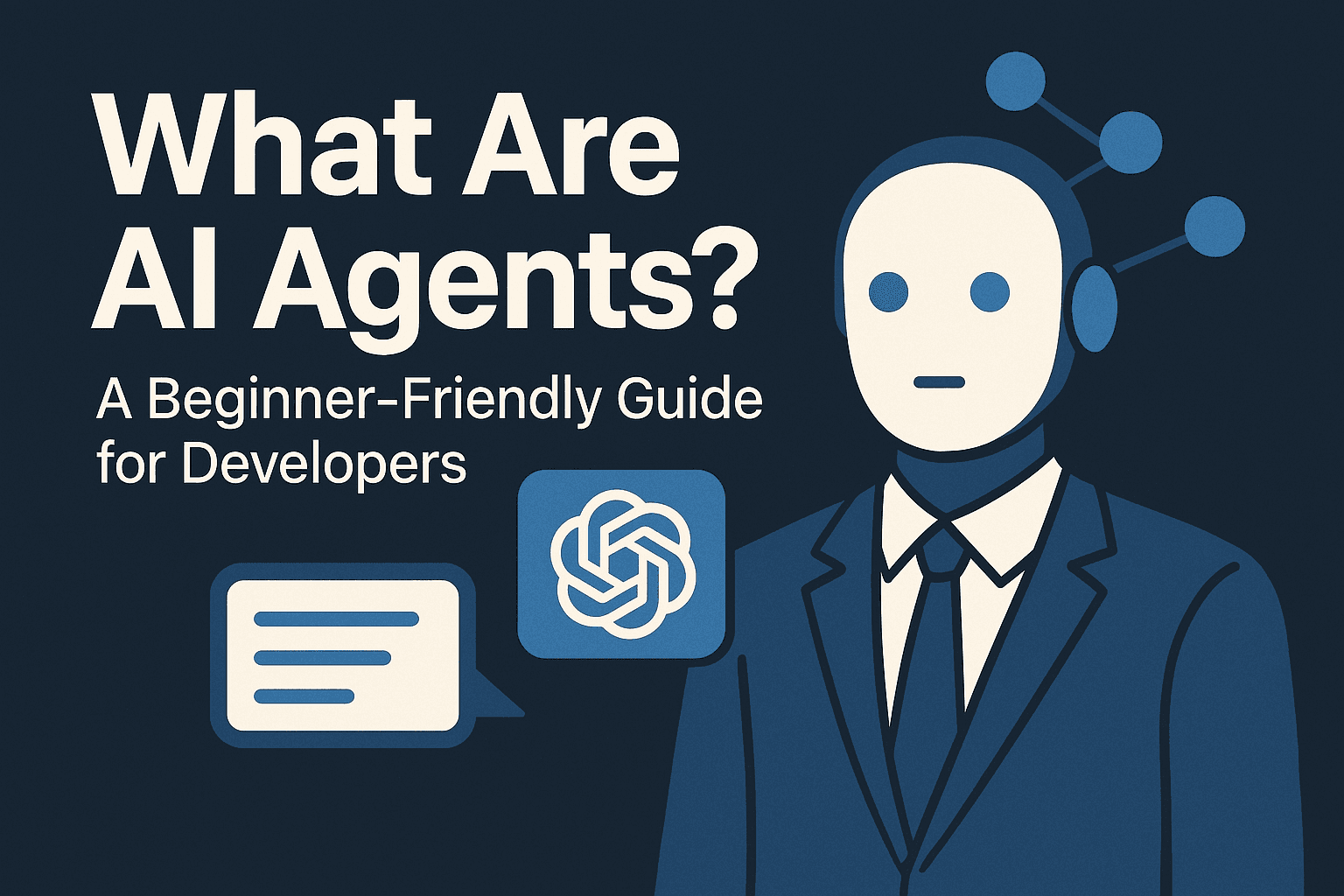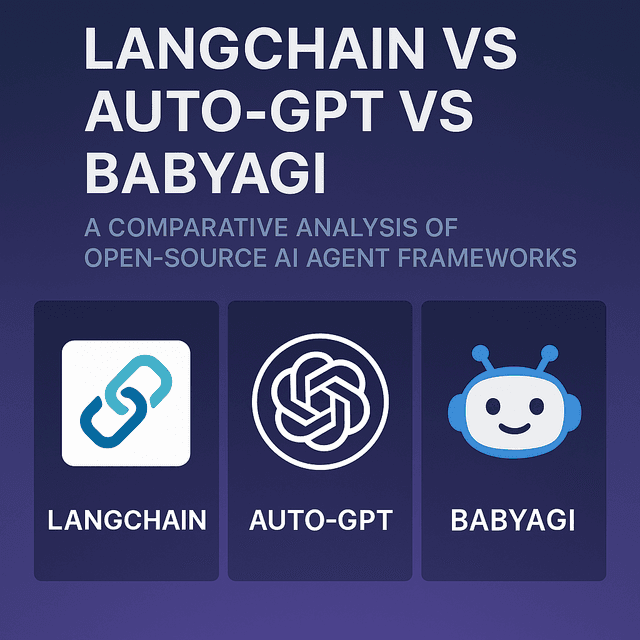What Are AI Agents? A Beginner-Friendly Guide for Developers

What Are AI Agents? A Beginner-Friendly Guide for Developers
Artificial Intelligence (AI) is no longer just a buzzword—it's a growing part of modern software development. One of the most exciting and evolving areas in AI is AI agents. But what exactly are they? Are they the same as chatbots? And how are developers using them in the real world?
In this post, we’ll break down the concept of AI agents, how they differ from chatbots, and explore some powerful real-world applications. Whether you're just curious or ready to build your own, this guide will give you a solid starting point.
What Is an AI Agent?
An AI agent is a software entity that perceives its environment, makes decisions, and takes actions to achieve specific goals—often autonomously.
Imagine a digital assistant that not only chats with users but also books appointments, writes code, interacts with APIs, and learns from experience. That’s the power of an AI agent.
Key Characteristics:
- Autonomy: Can act independently without needing constant human input.
- Goal-driven: Designed to accomplish tasks or solve problems.
- Interactive: Can perceive inputs (e.g., text, sensor data, files) and respond meaningfully.
- Adaptive: Learns and evolves over time with more data or feedback.
AI Agents vs. Chatbots: What’s the Difference?
At first glance, AI agents might sound like chatbots. Both communicate using natural language, but they serve different purposes and have different capabilities.
| Feature | Chatbots | AI Agents |
|---|---|---|
| Purpose | Predefined conversations | Task automation and problem-solving |
| Intelligence Level | Limited (rule-based or scripted) | Advanced (uses LLMs, planning, tools) |
| Learning Ability | Typically static | Can adapt and learn |
| Autonomy | Minimal | High (can act without supervision) |
| Tools/Integration | Usually limited to simple logic | Can use APIs, browse web, write code |
Example:
- Chatbot: "How can I help you?" → Responds with pre-written or LLM-generated text, but no real actions.
- AI Agent: "Book me a flight to Doha next Monday" → Searches flights, compares prices, books it, and emails you the itinerary.
How Do AI Agents Work?
Modern AI agents are often powered by large language models (LLMs) like OpenAI’s GPT, Anthropic’s Claude, or Google’s Gemini. But LLMs are just part of the system.
A typical AI agent includes:
- Core Engine (LLM) – Handles natural language understanding and reasoning.
- Planner/Executor – Breaks goals into steps and executes them (e.g., LangChain, AutoGPT).
- Tool Use – Integrates with external tools (browsers, databases, APIs).
- Memory – Stores past interactions or knowledge for future use.
Frameworks like LangChain, Auto-GPT, and Microsoft’s Semantic Kernel are commonly used to build these agents.
Real-World Applications of AI Agents
AI agents are already transforming how we interact with software. Here are a few real-life examples:
1. Customer Support Automation
AI agents can handle complex customer issues—like processing refunds or troubleshooting—by pulling data from CRMs, knowledge bases, and product databases.
2. Software Development Assistants
Agents like GitHub Copilot X or Codeium can write, debug, and test code, acting as intelligent coding partners.
3. Research and Data Analysis
Agents like ChatGPT with tools can browse the web, analyze PDFs, generate reports, and summarize findings across multiple sources.
4. Task Automation
From scheduling meetings to managing cloud infrastructure, AI agents are streamlining workflows using tools like Zapier, APIs, and CLI commands.
5. Personal Productivity
Think of an AI agent that manages your to-do list, sends follow-up emails, organizes files, and even reads your Slack messages.
Tools and Frameworks to Explore
If you’re a developer looking to get hands-on, here are some tools worth exploring:
- LangChain – Build LLM-powered agents with tool and memory support.
- Auto-GPT – Experimental open-source agent that self-prompts to complete goals.
- Microsoft Semantic Kernel – Framework for integrating AI with traditional software.
- CrewAI – A platform to create multiple agents that work collaboratively.
Conclusion
In today's fast-paced world, AI agents are transforming how we work and solve problems. From customer service to software development, research, task automation, and personal productivity, these tools are making our lives easier and more efficient. If you're a developer eager to dive in, there are plenty of tools and frameworks to explore, such as LangChain, Auto-GPT, Microsoft Semantic Kernel, and CrewAI. Embracing these technologies can open up new possibilities and streamline your workflows.
